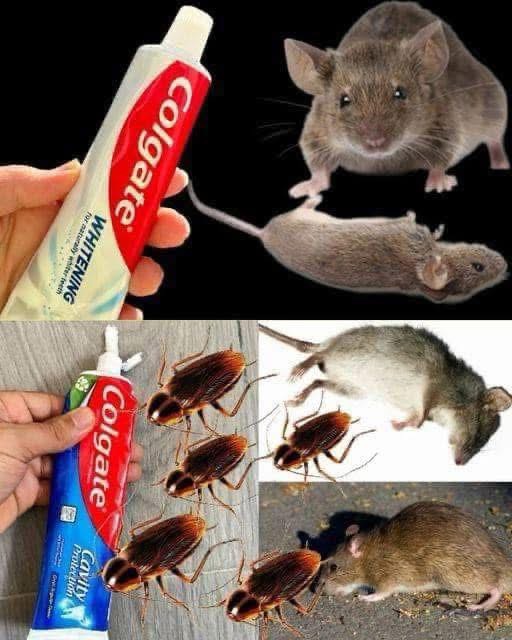Yes, surprisingly, toothpaste—specifically the minty kind—can act as a natural repellent and minor insecticide against cockroaches and ants. Here’s how and why:
How Toothpaste Affects Cockroaches and Ants
- Strong Scent (Menthol/Mint Oil)
- Most commercial toothpastes contain menthol, peppermint oil, or eucalyptus—scents that overwhelm insects’ sensory receptors and repel them.
- Ants, in particular, rely heavily on scent trails; strong mint odors disrupt these trails and their navigation.
- Toxic Ingredients (to Insects)
- Fluoride, detergents (like sodium lauryl sulfate), and baking soda can be mildly toxic to insects when ingested.
- These ingredients can dry out or damage the exoskeletons or digestive systems of small pests.
- Sticky Texture
- When applied directly, toothpaste can act as a barrier or even a trap for small insects.
How to Use Toothpaste as a Pest Deterrent
Repellent Paste
- Mix toothpaste with a bit of baking soda and apply it in cracks, corners, or near entry points (under sinks, behind appliances).
- Especially effective around ant trails or cockroach hiding spots.
ANT BAIT TRICK
- Mix equal parts of toothpaste, sugar, and baking soda.
- The sugar attracts ants, the baking soda reacts in their system, and the toothpaste masks the scent and slows them down.
Limitations and Warnings
- Not a long-term solution. Toothpaste is a temporary fix and won’t eliminate nests or infestations.
- Use with caution around pets and children, especially if it contains xylitol (toxic to dogs).
- Sticky residue can attract dust or create stains if applied carelessly on surfaces.
Natural Alternatives to Pair With Toothpaste
- Vinegar and water spray
- Cinnamon or clove powder
- Diatomaceous earth
- Borax-based baits
